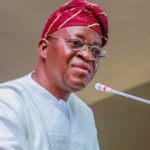
According to Adamu, who doubles as State Coordinator Actionaid Local Right Programme in Gombe, his members were starving following the decision of traders not to sell with the old notes.
Our correspondent reports that the Central Bank of Nigeria redesigned N200, N500 and N1000 notes, with January 31 deadline when the old notes would cease to be a legal tender.
He said, “Our people are already facing a lot of challenges and they are not able to afford basic needs of life because the old notes are being rejected and they don’t have access to the new notes.
“Most of our people can’t use technology to access other online platform like transfer and other things. For instance, a blind person may not be able to use his mobile phone to transfer or to buy from online.
“As a result, it means they can’t buy food or buy water. We have been receiving alot of complaints from our members that their means of livelihoods have been completely shut down as a result of this rejection of the old notes and the inability of them to access the new naira notes.”
Lamenting on the inability of the apex bank to sensitise PWDs, Adamu said getting access has been difficult.
“I can’t remember any deliberate attempt by the CBN or any government agency in targeting our people in this new policy. We just read it from the news. We have been trying to get access to the new notes without avail and alot of queues,” he said.
Speaking on the impact of the redesigned notes on members, he said, “Already we are poor, but with this we will be made poorer. It means the little we have we can’t spend it it has become a waste and we can’t afford means of getting the new ones it means we have been pushed into poverty.
“It means alot of persons will run into serious hunger, and starvation they can’t buy food with the old notes.”
While urging for extension, the chairman asked for increase in money in circulation with authorised agents to avoid giving our members fake notes, “increase the number of the new notes to banks, target places where the poor people are living because most of them they want to change N1,000, – N5,000 ,” he added.
On her part, Director of Programmes, ActionAid, Suwaiba Dankabo, who was in the state for sustainability planning for her organisation’s implementing partners, lamented the hardship faced by PWDs.
She said, “We are here for sustainability planning after spending 15 years in implementing the long-term integrated partnership in the state.
“We witnessed between yesterday and the last while conducting the sustainability process that many of the members came in panic with staff coming late with complaints of currency been rejected by motorists who declined old notes. Some with more complaint that they can’t eat that they are starving. In the last two days I was personally in a shop because they refused to accept my old currency.
“So if I in my own position had to struggle to buy water and simple bread you can imagine the plight of the other people especially people living with disability.
“We are not saying the policy of the CBN is bad because it came with good intention but the implementation has challenges it is not pro poor, those without enough money along. If you noticed the lower currency are not in use the coin, the N1000, N500, N200 are the common currencies in the market.”





